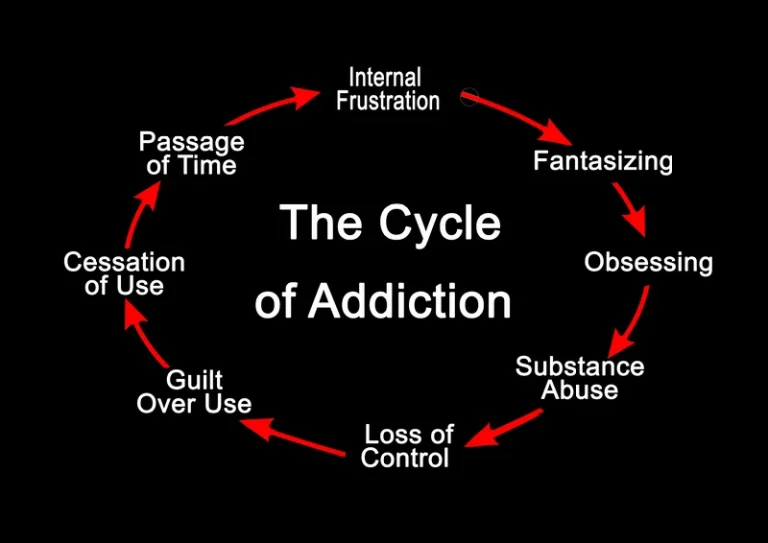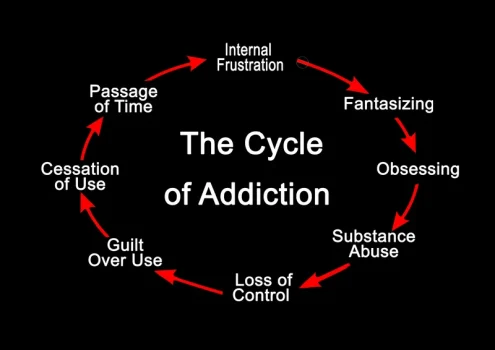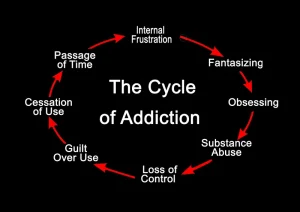
Without getting the help they need, an end stage alcoholic will have serious health problems that are likely to threaten their life. Just like with all other major disorders, there are stages of alcoholism that progress over time. In each stage, there are signs and symptoms, or red flags to be aware of. With the right knowledge, you can stop alcohol abuse before it turns into a full-on addiction. Alcohol in large amounts interferes with the digestion process and the passage of nutrients from the intestines into the bloodstream. Liver function has been damaged, further limiting the conversion of nutrients into a usable form that the body can assimilate.
Get Help With Alcohol Addiction

These drinkers prefer to spend time alone or with other alcoholics. They rarely venture far from places where alcohol is available, and going without a drink causes clear withdrawal symptoms. Yes, various factors can increase the risk of developing alcoholism, including genetics, the environment you grew up in, your social circle, and how you manage stress.
Recovery Support
But some people who drink face a risk of developing this chronic and progressive disease, which affects roughly 1 in every 8 Americans and contributes to about 88,000 deaths annually. A luxury center treating addiction and co-occurring mental health with evidence-based therapies, a continuum of care in bespoke facilities, and private bedrooms. Most people’s ideal recovery journey doesn’t include relapsing. It’s okay if it happens, but it’s also something you can proactively work to prevent. You may practice these skills in professional treatment, like joining a relapse prevention group in rehab. Therapy can teach you how to regulate your emotions and how you respond to them.

Late Stage Alcoholism
A moderate drinker might pair a glass of wine with a meal, while a regular drinker uses alcohol to feel good in general. As increased drinking continues, you become more dependent on alcohol and are at risk of developing alcoholism. The early or adaptive stage of alcoholism marks the beginning of an alcoholic’s struggle with addiction.
Stage One: Early Stage Alcoholism
This is the “premonitory symptom of disease” or the stage that gives warning signs if action is not taken. Not everyone in the pre-alcoholic stage will go on to develop an alcohol use disorder (AUD), but some certainly will. People with an alcohol addiction spend more of their time drinking alcohol. As soon as drinking becomes the main focus of their life, it’s a good indication the person has AUD. Robert is our health care professional reviewer of this website.
They are also unable to control the amount they drink, leading them to drink to excess every time they start drinking. In addition, the withdrawal symptoms are often intense, which makes quitting harder. Withdrawal symptoms may include excessive sweating, depression, nausea, and hand tremors. The primary symptoms of stage four include all-consuming alcohol use, health problems, and dangerous withdrawal symptoms. End-stage alcoholism, also known as late-stage alcoholism, is the most severe.

Recovery from Alcoholism (Getting Your Life Back)
You drink to take the edge off a stressful day at work, or so you can sleep better at night. You drink to reward yourself for all the hard work you’ve been putting in on the job. You can get clean and sober, start therapy, join a support group, and start your journey to recovery. AddictionResource aims to present the most accurate, trustworthy, and up-to-date medical content to our readers. Our team does their best for our readers to help them stay informed about vital healthcare decisions. This is an experimental phase, where individuals test their limits and boundaries with alcohol.
- However, continued use can lead to alterations in brain structure and function, amplifying vulnerability to addiction.
- During the early stages of the disease, the person may drink heavily and may experience hangovers in between drinking episodes.
- Close to 88,000 people in the U.S. die from alcohol-related causes every year.
Because the body has adapted to deal with an alcohol-rich environment, the alcoholic physically needs it to avoid the painful symptoms of withdrawal. The first of the 3 stages of alcoholism occurs when a problem drinker has slipped into the early stages of dependence. When you drink more often and in increasing amounts, you begin to develop a tolerance.1 Your body becomes used to having alcohol in your system and begins to depend on it. For example, you may notice that you drink a whole bottle of wine at dinner instead of a single glass. As the body and brain adapt to alcohol, alcohol abusers can drink far more than they used to, and show few if any outward signs of being impaired.

- When you drink frequently and heavily, your blood vessels narrow.
- Others can help you reduce cravings and normalize body functions.
- In fact, how a person functions will likely be improved with drinking as blood alcohol levels rise.
- The person and others around them may not recognize that they are in the earliest of the stages of alcoholism.
- As alcoholism progresses, the cells in the body become more and more resistant to the short-term effects of alcohol.
- They may begin drinking early in the day and plan their day around their drinking.
You can look for these signs in someone you love or in yourself. A Southern California detox and residential program offering personalized, evidence-based treatment in a tech-friendly and pet-friendly atmosphere. For example, you might unexpectedly realize scenes of drinking or drug use in a movie trigger an urge to take the substance, even though the depiction isn’t real. You might leave the theater feeling frustrated, uncomfortable, and disappointed in stages of alcoholism yourself—but you shouldn’t. People in stage five may show signs of addiction in other areas of life, like having financial issues, losing their job, and having trouble with their relationships.